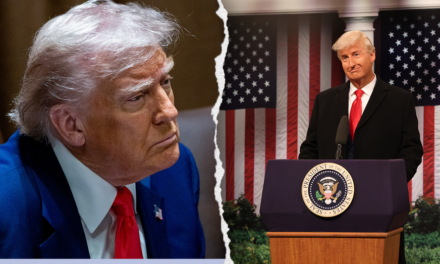In recent months, the landscape of American journalism has been marked by a growing discussion regarding the mental acuity of President Joe Biden. Journalists covering the White House have come forward to share their perspectives on whether there has been a concerted effort to downplay or obscure any indications of cognitive decline in the President. This topic has ignited significant debate, not only among journalists but also amongst the public, about transparency in leadership and the duty of the press to scrutinize those in power.
The concern surrounding President Biden’s mental fitness gained traction during the 2020 presidential campaign when critics raised questions about his age and overall health. During that time, a vigorous defense was mounted; supporters argued that Biden’s decades of political experience should outweigh apprehensions about his age. However, as the Biden administration progresses, these concerns have resurfaced, provoking some journalists to reflect on whether they, too, have contributed to any narrative that tends to minimize genuine scrutiny of the President’s cognitive abilities.
Many White House reporters have pointed to varying degrees of access to information as a crucial factor influencing the narrative. Inside the tightly controlled atmosphere of the Oval Office, members of the press pack often find themselves balancing the need for hard-hitting journalism with the realities of their access to the President and his staff. This has led some to question if there has been an intentional withholding of information regarding Biden’s health.
In conversations, several seasoned journalists have suggested that the administration might have employed a strategy to manage and shape public perception about the President’s mental faculties. The question that lingers, however, is whether this was conducted with integrity or veered into the territory of blatant deception. The weight of such a decision is compounded by the responsible role the media plays in a democratic society, particularly when it comes to evaluating the capabilities of elected officials.
The implications of withholding information are significant. If it is substantiated that there was a coordinated effort to conceal President Biden’s declining cognitive health, it raises questions about the broader ethical ramifications such actions could pose for not just the current administration but also the perception of future candidates. Would the press, for instance, face similar pressures to withhold critical information in the name of political decorum?
Moreover, discussions within journalistic circles often touch upon the portrayal of mental and physical health issues in public figures. It has become evident that existing biases around mental health can influence how the media handles situations like these. Historically, the media tends to shy away from explicitly calling out a leader’s mental decline, fearing the societal stigma associated with mental illness. It is essential to underscore, however, that by not addressing health issues forthrightly, the press might fail in its duty to fully and fairly inform the public about the conditions of those in leadership roles.
As conversations surrounding mental health awareness continue to evolve, journalists are grappling with how to navigate these complex waters. Justifying the omission of potentially critical information on the grounds of respect or sensitivity towards a public figure’s mental health can become a slippery slope. When does advocacy for an individual’s dignity cross the line into complicity in potential deception?
A poll conducted recently revealed that a significant portion of the American public harbors doubts about President Biden’s age and mental fitness. A substantial number of respondents expressed a desire for more transparency regarding the President’s health. This growing sentiment among the populace parallels the rising scrutiny from the press. As such, journalists face the challenge of holding power accountable while still addressing mental health concerns responsibly.
One notable case of scrutiny was Biden’s performance during various public speaking engagements, where he often appeared to struggle with coherence or continuity of thought. Journalists have noted that some of these instances lead to a broader conversation about whether there are systemic attempts within the administration to shield the President from unfavorable media portrayals. Such a perception complicates the narrative that surrounds not only Biden but also the effectiveness of the media’s role in reporting on leadership health issues.
Conversely, numerous proponents argue that the narrative surrounding Biden’s cognitive abilities may have been exacerbated by politicized media portrayals—where adversaries utilize any misstep or verbal stumble as fodder for criticism. In this aspect, the motivations behind the portrayal of Biden’s mental acuity can also appear curatorily selective, especially during moments when political gain is paramount. This has prompted calls for a unified baseline of reporting standards: one that resists partisanship and stands firmly on verified health assessments rather than assumptions or exaggerated narratives.
The call for more robust mechanisms by which presidents are evaluated health-wise is another topic that has emerged from this conversation. Historically, there are no standardized testing or reporting procedures mandated for presidential candidates and incumbents regarding their mental health. A proactive approach requiring transparency could mitigate the potential for manipulation of information about any candidate’s mental state both during election seasons and their time in office.
As the dialogue continues, the responsibility taken on by journalists becomes all the more crucial. They are tasked with uncovering the facts while also weaving in the sensitivities associated with mental health discussions. Journalists have noted that finding this balance is increasingly challenging, especially in an era of polarized politics where every statement is scrutinized and wielded as a weapon. Their commitment to a journalistic code of ethics—anchored in truthfulness, accuracy, and fairness—serves as a guiding principle in navigating these complex issues ahead.
In summary, the growing discourse surrounding President Biden’s mental decline alongside accusations of a deliberate cover-up raises critical questions about the interplay between politics, health, and media responsibility. As White House reporters speak out, society watches with bated breath, hoping that the complexities of leadership will be met with equally robust discussions rooted in truth and integrity. The implications of how this narrative unfolds could shape the future of political journalism and public trust in the institutions meant to serve the American people.
That said, it is essential to pay close attention to how journalists tackle the story moving forward. It will require a combination of in-depth investigative reporting, ethical considerations, and an unwavering commitment to transparency. As much as these discussions center around one individual, they hint at broader societal issues, pushing all parties involved to innovate how to address the mental health of public figures while ensuring that the citizens remain informed and engaged.
































